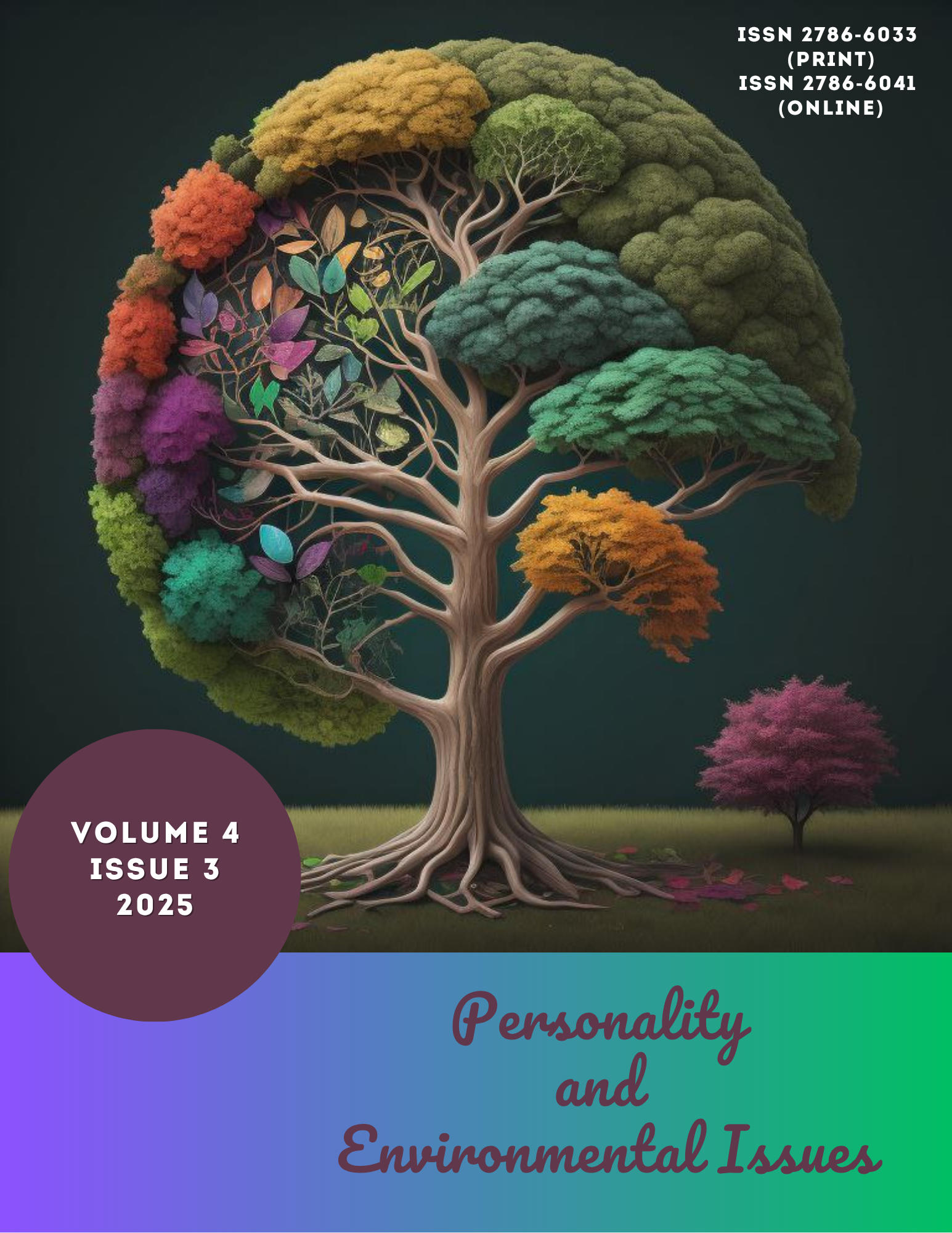Abstract
The article presents the results of a theoretical and empirical study of the psychological features of stress resistance in volunteers during martial law. It reveals the essence of stress resistance as an integrative personality trait that ensures an individual's ability to function effectively, maintain emotional balance, and adapt to the influence of stressors. It is emphasized that volunteer activity in modern conditions is accompanied by significant psycho-emotional stress, the need for quick decision-making, and constant interaction with people in crisis situations, which increases the risk of emotional exhaustion. Stress resistance is defined as a leading factor in the psychological well-being of volunteers, closely related to cognitive flexibility, emotional self-regulation, self-confidence, social support, and the ability to positively reinterpret difficult life circumstances. Scientific approaches to understanding the phenomenon of stress resistance are summarized, and the results of an empirical analysis of its structural components and levels of expression among volunteers involved in humanitarian activities during martial law are presented. It has been established that most of the subjects are characterized by an average level of stress resistance, which indicates sufficient potential for adaptation to stressful socio-psychological conditions. A positive correlation was found between stress resistance indicators, coping strategies such as “focusing on emotions and their active expression” and “use of sedatives,” and the level of trust in the world. Correlation analysis revealed a certain inconsistency in coping mechanisms: along with constructive ways of overcoming stress, some volunteers use maladaptive strategies of emotional regulation, which indicates a need to develop psychological self-control skills. The positive relationship between stress resistance and trust in the world shows that an optimistic perception of social reality acts as an internal psychological resource that increases personal adaptability and reduces anxiety. Such trust contributes to the formation of confidence, internal stability, and resistance to crisis factors. The results obtained emphasize the need to organize systematic psychological support for volunteers, focused on the formation of emotional self-regulation skills, the development of self-confidence, and the enhancement of psychological resilience. The formation of stress resistance is seen as a multidimensional process that integrates cognitive, emotional, and behavioral components and ensures the preservation of psychological health and the effectiveness of volunteers during martial law.
References
Applied psychodiagnostics. (2020). Prykladna psykhodiahnostyka v natsionalnii hvardii Ukrainy: metod. posibnyk / I. I. Prykhodko (Ed.). Kharkiv: NANGU. 388 p. [in Ukrainian].
Kolomiiets, A., Palamarchuk, O., Shulha, N., Kolomiiets, L., & Haba, I. (2019). Psychological principles of optimization of voluntary activities of student youth by means of information and communication technologies. Informatsiini tekhnolohii i zasoby navchannia, 71(3), 267–281. https://journal.iitta.gov.ua/index.php/itlt/article/view/2846
Kolomiiets, L., Shulga, G., & Lebed, I. (2023). Psychological features of interpersonal trust of future psychologists. Personality and Environmental Issues, 2(6), 11–17. https://doi.org/10.31652/2786-6033-2023-3(6)-11-17 [in Ukrainian].
Оzharivska, S. (2025). Empirical indicators of psychological health of people involved in volunteering. Perspektyvy ta innovatsii nauky, 1(47), 1336–1347. https://doi.org/10.52058/2786-4952-2025-1(47)-1336-1347 [in Ukrainian].
Research methods. (2023). Metodyky doslidzhennia psykhichnoho zdorovia ta blahopoluchchia personalu orhanizatsii: psykholohichnyi praktykum / L. M. Karamushka, O. V. Kredentser, K. V. Tereshchenko, V. I. Lahodzinska, V. M. Ivkin, O. S. Kovalchuk; L. M. Karamushka (Ed.). Kyiv: Instytut psykholohii imeni H. S. Kostiuka NAPN Ukrainy. 76 p. [in Ukrainian].
Savchenko, O. V., Petrenko, V. V., & Timakova, A. V. (2022). “Metodyka doviry/nedoviry osobystosti do svitu, do inshykh liudei, do sebe” (A. Kupreichenko): Ukrainian-language adaptation, validation and standardization. Naukovyi visnyk Uzhhorodskoho natsionalnoho universytetu. Seriia: Psykholohiia, 5, 16–22. [in Ukrainian].
Savichenko, O. M., Luschyk, A. M., Melnychenko, S. O., & Shunevich, E. M. (2024). Psykhichne zdorovia volonteriv v umovakh viiny. Naukovi zapysky Natsionalnoho universytetu “Ostrozka akademiia”. Seriia “Psykholohiia”, 17, 90–96. https://doi.org/10.25264/2415-7384-2024-17-90-96 [in Ukrainian].
Slobodianyk, N. V. (2024). Stress resistance as a psychological resource of personality in a situation of change. Vcheni zapysky TNU imeni V. I. Vernadskoho. Seriia: Psykholohiia, 35(74)(4), 91–95. https://doi.org/10.32782/2709-3093/2024.4/14 [in Ukrainian].
Valent, P. (2002). Diagnosis and management of secondary traumatic stress in workplace responders. Australasian Journal of Disaster and Trauma Studies, 1, 1–9.

This work is licensed under a Creative Commons Attribution 4.0 International License.
Copyright (c) 2025 Світлана Ожарівська





